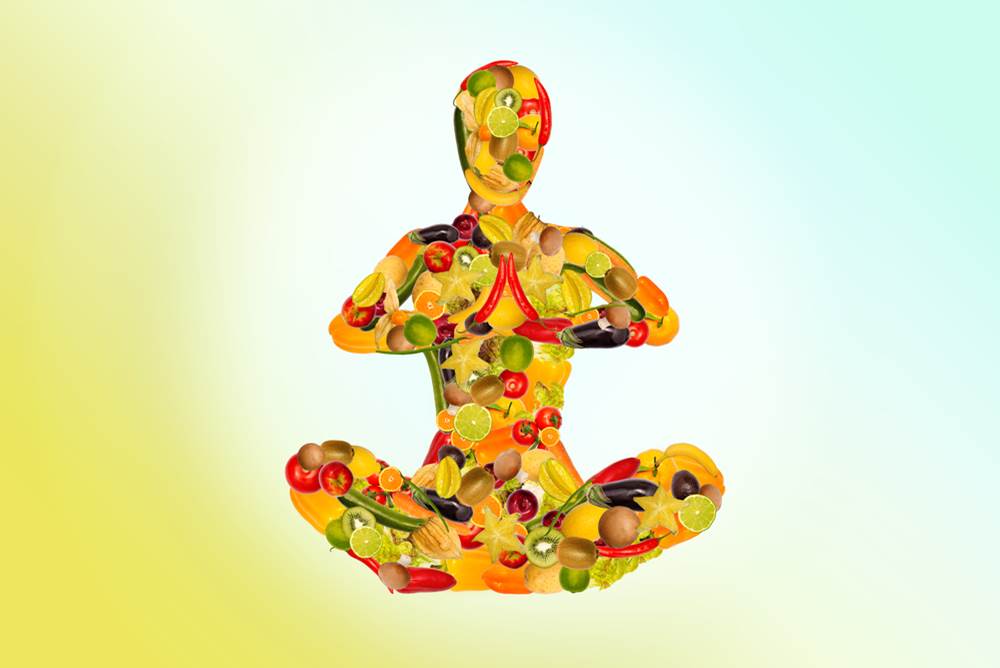The art of meditation promotes mental clarity, emotional calm, and physical relaxation. Meditation with nutrition could boost your concentration and focus. Have you ever considered that what you eat could have an impact on your meditation practice? Indeed, specific nutrients can optimize brain function, support calmness, and even help us reach those deeper states of consciousness. Here’s how to nourish your mind and body for an enhanced meditation experience.
Amino Acids: Brain’s Building Blocks
Amino acids, the building blocks of protein, play a crucial role in brain health. Tryptophan, for instance, is a precursor to serotonin, a neurotransmitter that regulates mood, appetite, sleep, and cognitive functions. Including tryptophan-rich foods like turkey, cheese, and pumpkin seeds in your diet can promote tranquility and mental clarity.
Omega-3 Fatty Acids: For Brain Health
Omega-3 fatty acids are essential for cognitive function and mental health. These healthy fats can enhance concentration and focus, making it easier to sink into a meditative state. Sources of Omega-3 include fatty fish like salmon, mackerel, and sardines, as well as chia seeds, flaxseeds, and walnuts.
Complex Carbohydrates: Steady Energy
While refined carbs can cause blood sugar spikes and crashes that disrupt mental clarity, complex carbohydrates provide a steady stream of energy to the brain. Whole grains, vegetables, and legumes are excellent sources of complex carbohydrates that can sustain your meditation practice.
Probiotics: The Gut-Brain Connection
Recent research points to a significant link between the gut and the brain, often referred to as the gut-brain axis. Probiotics, the beneficial bacteria in our gut, can have a profound effect on mental health and cognitive function. Foods rich in probiotics, such as yogurt, kefir, and fermented vegetables, can support a more focused and calm meditation experience.
Hydration: The Foundation of Health
Staying hydrated is fundamental to maintaining overall health and cognitive function. Even mild dehydration can impair concentration and increase feelings of anxiety. Make sure to drink plenty of water throughout the day, and consider hydrating foods like cucumbers, watermelon, and berries.
Meditation with Nutrition: Eating Before or After
The decision to eat before or after meditating largely depends on your personal comfort and the timing of your meditation practice. There is no hard and fast rule about eating before or after meditation. The most important factor is to ensure that hunger or overeating does not distract you during your practice. Adjust your eating habits around your meditation practice in a way that feels comfortable and beneficial to you.
Concluding Thoughts
Incorporating these nutritional powerhouses into your diet can provide the brain with the necessary fuel for an effective meditation practice. Remember, nutrition and meditation go hand in hand in nurturing both body and mind. By embracing these dietary tips, you can maximize the benefits of your meditation practice and pave the way towards greater mindfulness. Also see Mindfulness in Your Everyday Life

Further Reading
- “The Role of Nutrition in Mental Health” – National Institutes of Health
- “The Gut-Brain Axis: Interactions between Enteric Microbiota, Central and Enteric Nervous Systems” – Annals of Gastroenterology
- “Nutrition and the brain: what advice should we give?” – Journal of Psychopharmacology
- “Dehydration Influences Mood and Cognition: A Plausible Hypothesis?” – Nutrients

